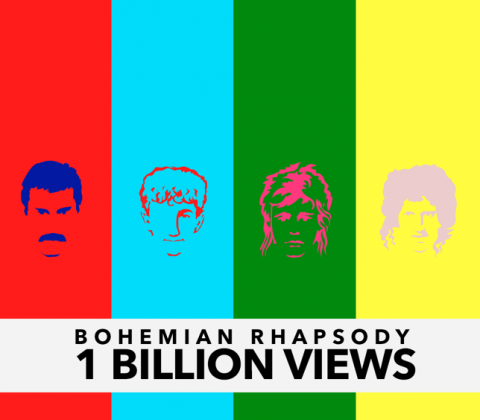Posts Tagged: Billion
UK App Developers Take Apple To Court For $1 Billion
Apple’s App Store is currently the only place to download apps for an iPhone and it lets the tech giant enforce any profit sharing cut they want. That looks set to change.
TalkAndroid
GlobalFoundries secures $1.5 billion in CHIPS Act funding for US expansion
The Biden administration is granting $ 1.5 billion in funding to GlobalFoundries to bolster semiconductor production under the CHIPS Act. The company, which spun out from AMD in 2009 and also has access to $ 1.6 billion in loans from the CHIPS Program Office, will split the cash between three projects.
First, GlobalFoundries will build a new fabrication facility in Malta, New York, where it aims to produce “high value technologies not currently available in the US,” the Department of Commerce said in a statement. GlobalFoundries says it will use the facility to build chips for a range of industries and applications, including the automotive, aerospace, defense and AI spaces. Construction is expected to start in 2025.
Secondly, GlobalFoundries plans to expand its existing facility in Malta by incorporating tech from its Singapore and Germany plants with the aim of making more semiconductors for use in cars and trucks. This expansion, combined with the new fab, will enable GlobalFoundries to triple the capacity of its Malta campus over the next decade or so. Once all phases of both projects are complete, GlobalFoundries expects to increase wafer production to 1 million per year across the plants.
Last but not least, the remaining funding will go toward modernizing an existing fab in Burlington, Vermont. The aim is to build the first US plant capable of high-volume manufacturing of next-generation gallium nitride on silicon semiconductors for electric vehicles, smartphones, the power grid and other key technologies. The plant will use entirely carbon-free energy, while an on-site solar system will provide up to nine percent of annual power needs.
Through public-private partnerships, GlobalFoundries plans to invest more than $ 12 billion into the sites over the next 10-plus years. New York is also supporting the Malta projects with $ 575 million in performance-based Green CHIPS tax credits, while the New York Power Authority is investing at least $ 30 million.
The Department of Commerce says the three projects are expected to create 1,500 manufacturing positions and around 9,000 construction jobs over the next 10 years. The positions are slated to pay fair wages and offer benefits including childcare.
Aligned with the broader aims of the CHIPS Act, the investment is designed to improve domestic semiconductor supply chains. GlobalFoundries says that there are only four companies that can deliver “current and mature foundry capabilities” at its scale outside of China, and it’s the only one of those based in the US.
Last year, the company reached a direct supply agreement with GM to provide the automaker with US-built processors and help it avoid the kinds of chip shortages that caused a significant slowdown in car manufacturing in the midst of the COVID-19 pandemic. GlobalFoundries agreed to create an exclusive capacity corridor for GM chips. GlobalFoundries struck a chip deal with Ford in 2021 as well.
This article originally appeared on Engadget at https://www.engadget.com/globalfoundries-secures-15-billion-in-chips-act-funding-for-us-expansion-172754429.html?src=rss
Engadget is a web magazine with obsessive daily coverage of everything new in gadgets and consumer electronics
The Morning After: Google will settle $5 billion lawsuit over tracking Incognito Chrome users
Google’s Chrome has long featured the ability to launch the browser in Incognito mode, offering a seemingly blank slate for your internet browsing, away from your usual cookies, forms and web history. But that seemingly didn’t mean Google wasn’t keeping an eye on where you were browsing.
The company faced a lawsuit in 2020 that accused it of tracking Chrome users’ activities even when they were using Incognito mode. Google has now agreed to settle the complaint that originally sought $ 5 billion in damages, after failing to get the suit dismissed.
The plaintiffs said Google used tools like its Analytics product, apps and browser plug-ins to monitor users. By tracking someone on Incognito, the company was falsely making people believe that they could control the information that they were willing to share with it.
The lawsuit’s plaintiffs revealed internal emails that allegedly showed conversations between Google execs proving that the company monitored Incognito browser usage to sell ads and track web traffic. Which does sound like a thing Google would do. According to Reuters and The Washington Post, neither side has made the details of the settlement public.
– Mat Smith
You can get these reports delivered daily direct to your inbox. Subscribe right here!
The biggest stories you might have missed
This is the future of generative AI, according to generative AI
Apple reportedly faces pressure in India after sending out warnings of state-sponsored hacking
Russia will assist NASA with ISS space flights through 2025
The best PS5 accessories for 2024
Xiaomi says its EV can outperform Porsche and has more tech than Tesla
It tapped former BMW and Mercedes designers.
Xiaomi, best known for its smartphones, smart home peripherals, and many other things, has made an EV. Unveiled at a Beijing event yesterday, the Xiaomi SU7 — pronounced “soo-chee” in Chinese — is a sedan that will come in two flavors: the dual-motor all-wheel-drive SU7 Max, and the single-motor rear-wheel-drive SU7.
Xiaomi claims the SU7 Max has a range of up to 800km and a 0-100km/h acceleration of just 2.78s, both of which apparently beat Tesla’s Model S and Porsche’s Taycan Turbo. There’s also a lot of tech splashed around, with a dedicated in-car entertainment system, ports for your (Xiaomi, of course) tablets and headlamps designed to look like the chinese character for rice – also the ‘mi’ in Xiaomi. We’ve chewed over all the details below.
Apple is selling its contested Watch models again
Both the Series 9 or Ultra 2 are available again from the company’s website.
The Apple Watch Series 9 and Ultra 2 are back on sale, after a federal appeals court in Washington D.C. granted a temporary pause on an import and sales ban. However, Apple’s wearables aren’t out of the woods just yet: the ban could be reinstated on January 10, when the International Trade Commission (ITC) decides on whether to grant Apple a longer pause.
The ban could also return on January 13, when the same agency makes a decision regarding Apple’s redesign of both smartwatches. The original ban lasted a little more than a day.
Look at LG’s two-legged robot
It’ll feature AI-powered skills and face recognition.
Yes, CES is in a couple of weeks. Why do you ask?
This article originally appeared on Engadget at https://www.engadget.com/the-morning-after-google-will-settle-5-billion-lawsuit-over-tracking-incognito-chrome-users-121651324.html?src=rss
Engadget is a web magazine with obsessive daily coverage of everything new in gadgets and consumer electronics
Google just settled a $5 billion privacy suit involving Chrome browser
Google has agreed to settle a $ 5 billion lawsuit brought by claimants who accused the web giant of privacy invasion by tracking their online activities.
Digital Trends
Broadcom closes its $61 billion megadeal with VMware
Broadcom’s mega $ 61 billion VMware acquisition has closed following considerable scrutiny by regulators, the company announced in a press release. With China recently granting approval for the acquisition with added restrictions, the network chip manufacturer had secured all the required approvals.
“Broadcom has received legal merger clearance in Australia, Brazil, Canada, China, the European Union, Israel, Japan, South Africa, South Korea, Taiwan, the United Kingdom, and foreign investment control clearance in all necessary jurisdictions,” the company said. “We are excited to welcome VMware to Broadcom and bring together our engineering-first, innovation-centric teams.”
The Broadcom/VMware deal lacked the glamour of tech’s other mega acquisition involving Microsoft and Activision. However, San Jose-based Broadcom’s products form the structure of much of the internet, as they’re widely used for data centers, cloud providers and network infrastructure. VMware, meanwhile, makes virtualization and cloud computing software that allows corporations to safely link local networks with public cloud access.
That made VMware a logical target for Broadcom, but it also placed the acquisition in the crosshairs of regulators in multiple regions. The European Commission, for one, was concerned that Broadcom could harm competition by limiting interoperability between rival hardware and VMware’s server virtualization software. It also worried the company could either prevent or degrade access to VMware’s software, or bundle VMware with its own hardware products.
Broadcom gained EU approval for the deal in the summer though, mainly by providing IP access and source code for key network fiber optic components to its main rival, Marvell. The EU also concluded that fears of VMware bundling were unfounded and that Broadcom would still face competition in the storage adapter and NIC markets.
There were also concerns that tensions between China and the US could scuttle the deal, after the Biden administration announced new rules in October making it harder to export high-end chips to China. However, approval in that market was announced yesterday, with conditions imposed by China on how Broadcom sells products locally. Namely, it had to ensure that VMware’s server software was interoperable with rival hardware, China’s regulator said in a statement.
This article originally appeared on Engadget at https://www.engadget.com/broadcom-closes-its-61-billion-megadeal-with-vmware-083915996.html?src=rss
Engadget is a web magazine with obsessive daily coverage of everything new in gadgets and consumer electronics
Google paid $26 billion in 2021 for default search engine status
Vice president Prabhakar Raghavan testified Friday that Google paid $ 26.3 billion in 2021 for the purpose of maintaining default search engine status and acquiring traffic, Bloomberg reports. It’s likely the lion’s share of that sum went to Apple, which it has showered with exorbitant sums for many years in order to remain the default search option on iPhone, iPad and Mac.
Raghavan, who was testifying as part of the DOJ’s ongoing antitrust suit against the company, said Google’s search advertising made $ 146.4 billion in revenue in 2021, which puts the $ 26 billion it paid for default status in perspective. The executive clarified that default status was the most costly part of what it pays to acquire traffic.
Raghavan didn’t mention how much of the $ 26.3 billion went to Apple. But CNBC reports that an estimate from private wealth management firm Bernstein ballparked that Google could pay Apple up to $ 19 billion this year for the default privilege.
A slide shown in court revealed that, in 2014, Google brought in $ 47 billion in search revenue while paying $ 7.1 billion for default status. Raghavan testified that Google’s overall default search engine payments nearly quadrupled from 2014 to 2021, while its search advertising revenue (roughly) tripled.
Google objected to making the figures public, arguing it would hurt its ability to negotiate future contracts. Judge Amit Mehta, overseeing the case, disagreed.
This article originally appeared on Engadget at https://www.engadget.com/google-paid-26-billion-in-2021-for-default-search-engine-status-203129384.html?src=rss
Engadget is a web magazine with obsessive daily coverage of everything new in gadgets and consumer electronics
Biden administration earmarks $1.2 billion for two large-scale carbon capture projects
The Department of Energy is giving grants of up to $ 1.2 billion to two direct air capture (DAC) projects that aim to remove more than 2 million metric tons of carbon dioxide from the atmosphere every year. The agency says that's equivalent to the annual emissions of around 445,000 gas-powered cars. The DOE notes that the projects in Texas and Louisiana will "create 4,800 good-paying jobs" as well.
DAC employs a chemical process to separate CO2 from the air. Facilities can then store CO2 underground or put it into carbon-containing products like concrete that prevent the gas from getting back into the atmosphere.
These are the first commercial-scale DAC projects in the US. They'll each be capable of removing more than 250 times as much CO2 from the atmosphere than the current largest DAC location, according to the DOE. Occidental Petroleum subsidiary 1PointFive and its partners are building the Texas facility. The company's CEO says that, when the project is fully operational, it has the potential to remove up to 30 million tons of CO2 from the atmosphere each year.
The two projects are the first selections from the Regional Direct Air Capture Hubs program, which the Bipartisan Infrastructure Law funded. The aim of the program is to mitigate the impact of climate change by developing a nationwide group of large-scale carbon removal sites that will work in harmony with other efforts to reduce emissions.
The DOE says that, when it is sufficiently scaled up, DAC technology can help the US meet its target of neutralizing emissions by 2050. However, as Reuters notes, to reach the level of scale needed for DAC to have a big enough impact globally, it's imperative to reduce the costs involved quickly.
To that end, the agency has announced several efforts to lower the costs of DAC to below $ 100 for each net metric ton of CO2-equivalent by the end of the 2020s. It's funding 14 feasibility studies along with five engineering and design studies for projects that are in earlier stages. There's also a $ 35 million government procurement program in place for carbon removal credits.
To reach the Biden administration's goal of having a net zero emissions economy by 2050, the DOE estimates that between 400 million and 1.8 billion metric tons will have to be removed from the atmosphere and captured from emissions sources every year.
This article originally appeared on Engadget at https://www.engadget.com/biden-administration-earmarks-12-billion-for-two-large-scale-carbon-capture-projects-184525151.html?src=rss
Engadget is a web magazine with obsessive daily coverage of everything new in gadgets and consumer electronics
Company responsible for 7.5 billion robocalls sued by nearly every Attorney General
We can all agree that robocalls are the worst. While there might never be a way to get rid of them entirely (though agencies are certainly working on it), one the most prolific sources of these intrusions is finally getting hauled into court.
CBS News reports that Attorneys General from 48 states (as well as DC) are coming together to file a bipartisan lawsuit against Arizona-based Avid Telecom, its owner Michael D. Lansky and vice president Stacey S. Reeves. The 141-page suit claims that the company illegally made over 7.5 billion calls to people on the National Do Not Call Registry. Arizona Attorney General Kris Meyes claims that nearly 197 million robocalls were made to phone numbers in her state over a five-year period between December 2018 and January 2023.
The lawsuit says that Avid Telecom spoofed phone numbers, including 8.4 million that appeared to be coming from the government or law enforcement, and others disguised as originating from Amazon, DirecTV and many more. The suit alleges that Avid Telecom violated the Telephone and Consumer Act, the Telemarketing Sales Rule and several other telemarketing and consumer laws.
The AGs are asking the court to enjoin Avid Telecom from making illegal robocalls, and to pay damages and restitution to the people it called illegally. They're also pursuing several statutory avenues to make Avid cough of money on a per-violation basis, which given the enormous volume of calls it has made, could add up quickly. Sumco Panama, which was responsible for a comparatively smaller 5 billion robocalls, was fined nearly $ 300 million by the FCC late last year.
Earlier this month, it was reported that XCast Labs is being sued by the U.S. Federal Trade Commission over allegedly helping other companies call those on the National Do Not Call Registry.
In 2017, Dish reached a settlement that cost them $ 210 million. The company allegedly made millions of calls in an attempt to sell and promote its satellite TV service. Dish ultimately had to pay a $ 126 million civil fine to the US government, and $ 84 million to residents in California, Illinois, North Carolina and Ohio. Hopefully, we’ll see a similar result with Avid Telecom.
This article originally appeared on Engadget at https://www.engadget.com/company-responsible-for-75-billion-robocalls-sued-by-nearly-every-attorney-general-220050450.html?src=rss
Engadget is a web magazine with obsessive daily coverage of everything new in gadgets and consumer electronics
Elon Musk reportedly values Twitter at $20 billion
Elon Musk values Twitter at about $ 20 billion, according to an email seen by The Information and The New York Times. Musk shared the valuation, a significant drop from the $ 44 billion he paid to buy the company last fall, in a memo he sent to Twitter employees on Friday announcing a new stock compensation program. The billionaire reportedly warned Twitter’s significantly diminished workforce that the website was still in a precarious financial position. “Twitter is being reshaped rapidly,” he wrote, adding the company had, at one point, been four months away from running out of cash.
Comp increases will be based on X Corp stock. Current grants are based on a $ 20b valuation. Musk says he sees a “clear but difficult path” to $ 250 billion valuation which would mean current grants could 10x. 3/
— Zoë Schiffer (@ZoeSchiffer) March 25, 2023
According to Platformer’s Zoë Schiffer, Musk additionally told employees he sees a “clear but difficult path” to a $ 250 billion valuation, a hypothetical outcome that would make the company’s current stock grants worth 10 times as much in the future. Musk said Twitter would allow staff to sell stock every six months, a policy similar to one in place at SpaceX. According to Musk, the program would give employees “liquid stock” while shielding them from the “price chaos” that comes with equity at a publicly traded company.
To put Musk’s valuation in context, at $ 20 billion, Twitter would be worth more than Snapchat creator Snap, a company with nearly 140 million more daily active users. It’s also worth noting that the estimate likely reflects the difficulties Twitter has faced as a direct result of Musk’s decisions. At the start of 2023, the company’s daily revenue was reportedly down 40 percent from a year ago after more than 500 of its top advertising partners had paused spending on the platform. Many of those companies left following the firm’s messy relaunch of Twitter Blue, which saw verified trolls abuse the service to impersonate brands. Based on recent reporting from The Information, there were only about 180,000 Twitter Blue subscribers in the US at the beginning of February, suggesting the service is nowhere close to making up for the financial downturn Twitter has experienced since Musk’s takeover.
This article originally appeared on Engadget at https://www.engadget.com/elon-musk-reportedly-values-twitter-at-20-billion-200841233.html?src=rss
Engadget is a web magazine with obsessive daily coverage of everything new in gadgets and consumer electronics
Mint Mobile gets picked up by T-Mobile for a cool $1.35 Billion
There’s big news in carrier world today with T-Mobile announcing that it has agreed to pick up Mint Mobile for $ 1.35 Billion, which probably means a tidy sum of dough will be headed to the guy who plays the Merch-with-a-Mouth, part-owner Ryan Reynolds. That’s the headline part of the deal anyway, the overall announcement is […]
Come comment on this article: Mint Mobile gets picked up by T-Mobile for a cool $ 1.35 Billion
The White House’s $39 billion chip-making giveaway starts today
When President Joe Biden signed the CHIPS and Science Act into law in 2022, it put $ 52 billion in tax credits and funding on the table to help bolster the semiconductor industry in the US, with $ 39 billion specifically earmarked for semiconductor manufacturing incentives. Now, we're starting to see how that initiative is going to play out: The Biden Administration has officially launched the first CHIPS for America funding opportunity, laying out the application process for "projects to construct, expand or modernize commercial facilities for the production of leading-edge, current-generation and mature-node semiconductors."
The "first" in first funding opportunity is the key word here: At the start, CHIPS for America is specifically looking to fund projects that align with the program's "vision for success" that seeks to have a number of leading-edge logic fabrication facilities and DRAM chip manufacturers by the end of the decade, as well as hitting specific production capacity goals for "current-generation and mature-node" semiconductors. The program plans to offer more funding opportunities for R&D and manufacturing equipment facilities at a later date. Applications for those programs won't launch until late Spring and Fall of 2023, but the CHIPS Program Office is open to receiving statements of interest from hopeful applicants.
The program also includes strict guardrails for how funding is used. Applicants who are awarded CHIPS funding will be prohibited from using the payments for stock buybacks or to pay out dividends, and payments will be tied to meeting specific milestones. It'll be awhile before the first recipients of CHIPS funding are announced, but hopeful projects can begin submitting applications on March 31, 2023. Want all the details? Check out the full CHIPS for America announcement right here.
This article originally appeared on Engadget at https://www.engadget.com/the-white-houses-39-billion-chip-making-giveaway-starts-today-210717470.html?src=rss
Engadget is a web magazine with obsessive daily coverage of everything new in gadgets and consumer electronics
More than 5 billion mobile phones to become waste this year
Friday marks International E-Waste Day and this year its organizers want us to think about how we deal with smaller gadgets that we no longer use.
Mobile | Digital Trends
Biden administration launches $45 billion plan to get the entire US online by 2030
The Biden administration has formally started its $ 45 billion effort to bring affordable and reliable high-speed broadband internet access to everyone in the US by 2030. The Internet for All funding is part of the $ 65 billion earmarked for broadband in the $ 1 trillion Bipartisan Infrastructure Law. Starting today, states and other entities can apply for funding from three Internet for All programs.
“In the 21st century, you simply cannot participate in the economy if you don’t have access to reliable, affordable high-speed internet,” Commerce Secretary Gina Raimondo, who is overseeing the distribution of the funds, said. “Thanks to President Biden’s Bipartisan Infrastructure Law, Americans across the country will no longer be held back by a lack of high-speed internet access. We are going to ensure every American will have access to technologies that allow them to attend class, start a small business, visit with their doctor and participate in the modern economy.”
States could use the funding to install fiber-optic cables, put more Wi-Fi networks in place or even offer some people free broadband internet access. The launch of the program follows news earlier this week that the Biden administration has teamed up with 20 providers to offer subsidized internet service to low-income households.
Most of the Internet for All funding will be available from the Broadband Equity, Access and Deployment (BEAD) Program. States and other territories will need to file a letter of intent and a budget for planning funds. They'll then receive $ 5 million in planning funds to help them put together a five-year plan detailing how they'll provide comprehensive internet access to all residents.
Each state that takes part in the program will receive at least $ 100 million from the BEAD pot of $ 42.5 billion. After that, funding allocations will be decided in part based on updated broadband coverage maps that the Federal Communications Commission is expected to release this fall.
Under the $ 1 billion Enabling Middle Mile Broadband Infrastructure Program, funding will be allocated based on a "technology-neutral, competitive basis" to build, buy or improve infrastructure elements that carry "large amounts of data at high speeds over long distances." As for the $ 1.5 billion State Digital Equity Planning Grant Program, that's designed to bolster adoption and use of the internet with the help of digital literacy training.
Take-Two is acquiring mobile game giant Zynga for $12.7 billion
PC gaming Giant Take-Two has announced that it's making a big move into mobile gaming with the acquisition of Zynga for a total price of approximately $ 12.7 billion. Take-Two already owns Rockstar Games, Codemasters and 2K, producing games like Grand Theft Auto, Red Dead Redemption, Bioshock and others. Zynga, meanwhile, produces well-known mobile titles like CSR Racing, FarmVille, and Words with Friends.
Take-Two said that the deal will result in $ 6.1 billion worth of 12-month pro-forma net bookings, meaning it will become one of the largest gaming companies in the world. "This strategic combination brings together our best-in-class console and PC franchises, with a market-leading, diversified mobile publishing platform that has a rich history of innovation and creativity," said Take-Two Chairman and CEO Strauss Zelnick. The deal will also help Take-Two save about $ 100 million annually after two years.
Zynga itself was on an acquisition streak of late, having acquired the studio behind Torchlight 3early last year. Zynga has sometimes relied on acquisitions to find the hottest games in the notoriously fickle mobile gaming market. Still, Take-Two said that the mobile industry booked $ 136 billion 2021 and is currently growing at over 8 percent, so the money is there to be had. Mobile will now account for half of its net bookings (net amount of products and services sold digitally or sold-in physically), the company said.
Hyundai confirms its $1.1 billion acquisition of Boston Dynamics
Boston Dynamics is now officially part of Hyundai Motor Group. The Korean conglomerate has struck a deal with Softbank to acquire a controlling interest — an 80 percent stake — in the robotics company for $ 1.1 billion. Softbank will retain a 20 perce…
Engadget
House approves $100 billion in broadband funding for rural areas
The US House of Representatives approved the Moving Forward Act this week, a $ 1.5 trillion infrastructure bill that puts $ 100 billion toward bringing high-speed broadband to underserved areas. The ambitious bill also allocates funds toward transporta…
Engadget RSS Feed
CERN approves plans for a $23 billion, 62-mile long super-collider
CERN has approved plans to build a $ 23 billion super-collider 100 km in circumference (62 miles) that would make the current 27 km 16 teraelectron volt (TeV) Large Hadron Collider (LHC) look tiny in comparison. The so-called Future Circular Collider…
Engadget RSS Feed
Jeff Bezos pledges $10 billion to combat climate change
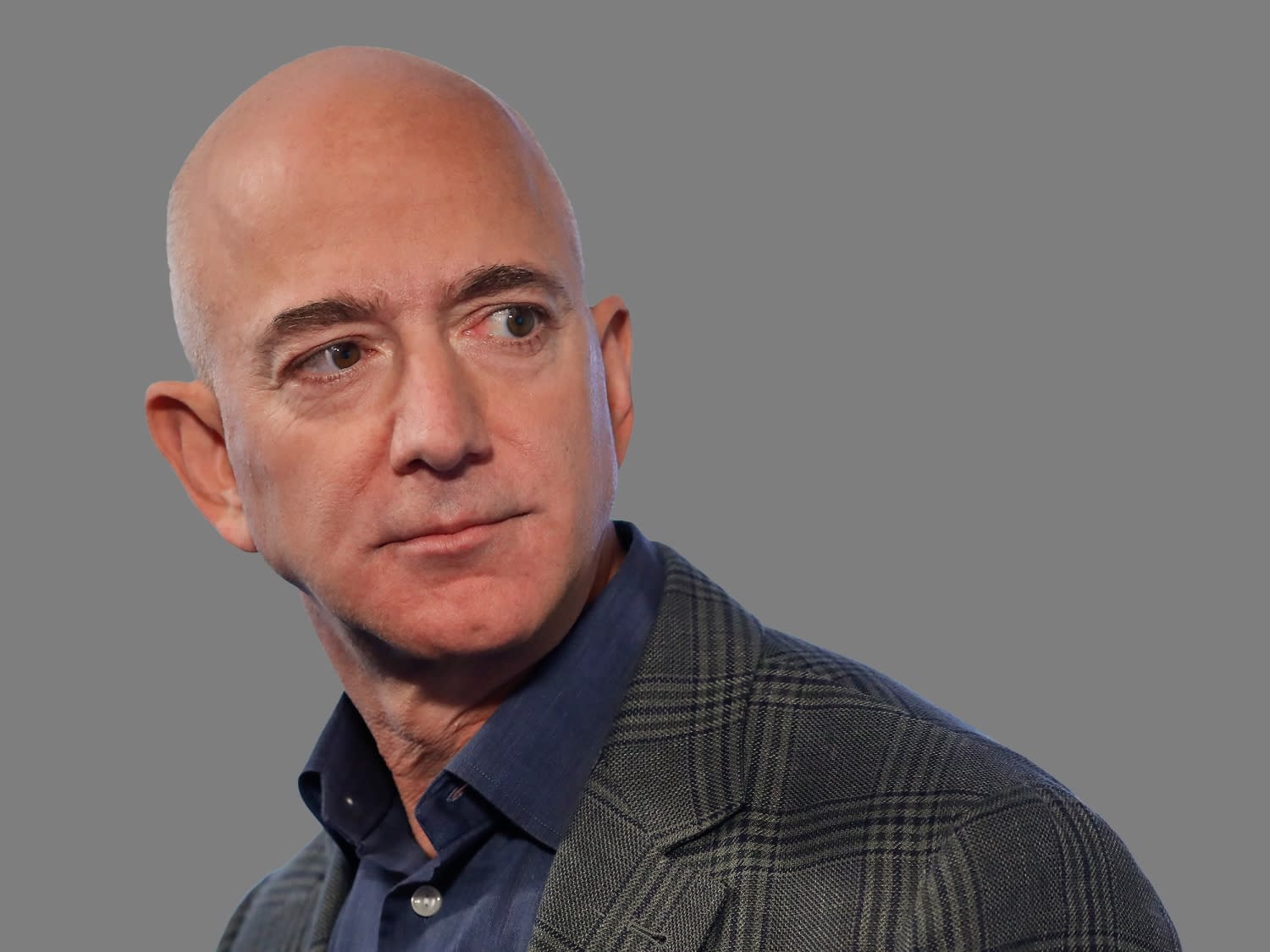
Engadget RSS Feed
Google’s Fitbit acquisition is official for $2.1 billion
Despite being one of the first in the wearable game and buying up Pebble, Fitbit is going to fold under Alphabet’s wing. Google’s parent company was reportedly trying to buy them earlier this week, and that deal has now closed. It’s worth $ 2.1 billion, too, so some serious money was spent. What’s Google going to […]
Come comment on this article: Google’s Fitbit acquisition is official for $ 2.1 billion
VLC reaches three billion downloads, will soon add AirPlay
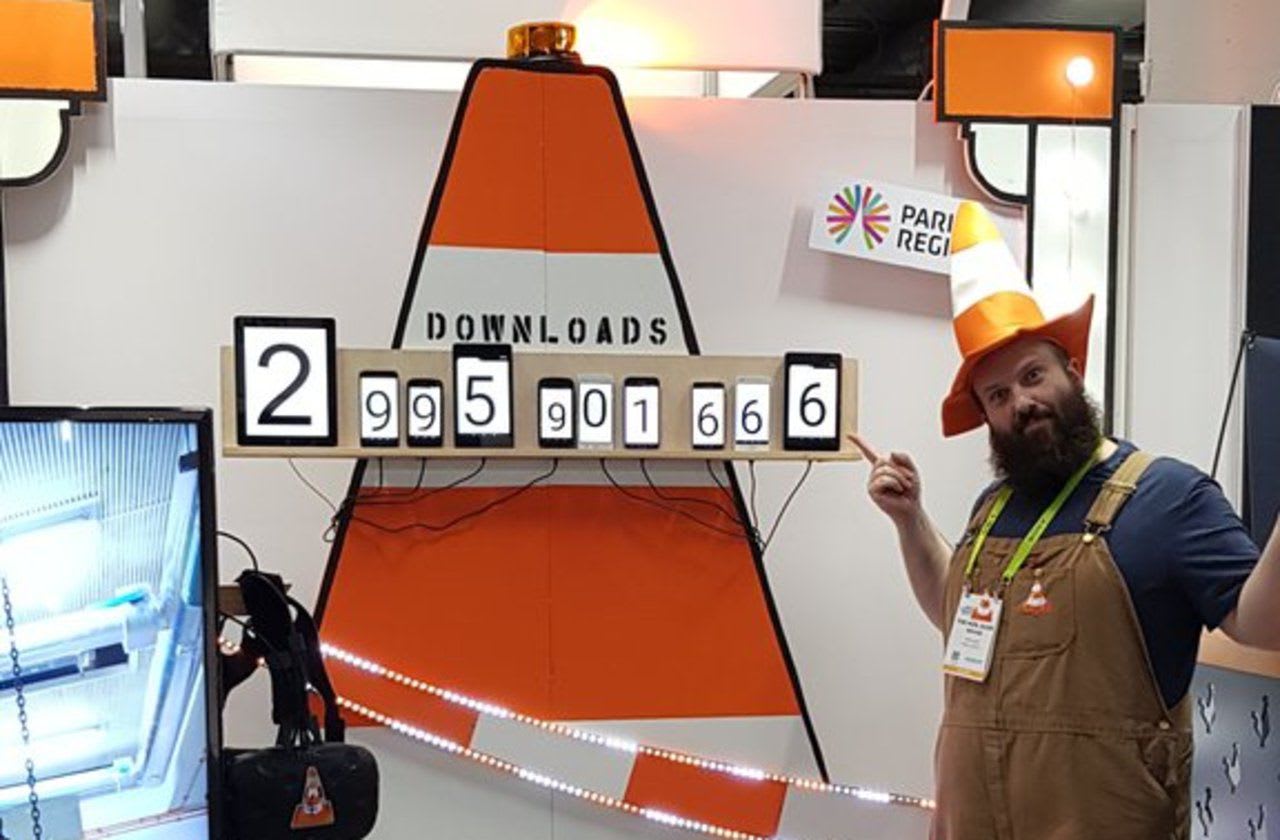 VLC, the video player that'll crunch every format you've heard of, plus all the ones you haven't, is about to hit a huge milestone. Variety spotted an installation at VideoLan's CES booth that's counting ever-closer to the three billion download mark…
VLC, the video player that'll crunch every format you've heard of, plus all the ones you haven't, is about to hit a huge milestone. Variety spotted an installation at VideoLan's CES booth that's counting ever-closer to the three billion download mark…
Engadget RSS Feed
Google Duo hits a major milestone with 1 billion downloads from the Play Store
Huawei isn’t the only one breaking records, as Google has officially crossed the 1 billion download threshold with their video calling app, Duo. It did it just in time for the end of 2018, too. Part of the reason why Duo has hit such high numbers is because it’s a pre-installed application for new Android […]
Come comment on this article: Google Duo hits a major milestone with 1 billion downloads from the Play Store
Tinder co-founders sue parent company for $2 billion over deception
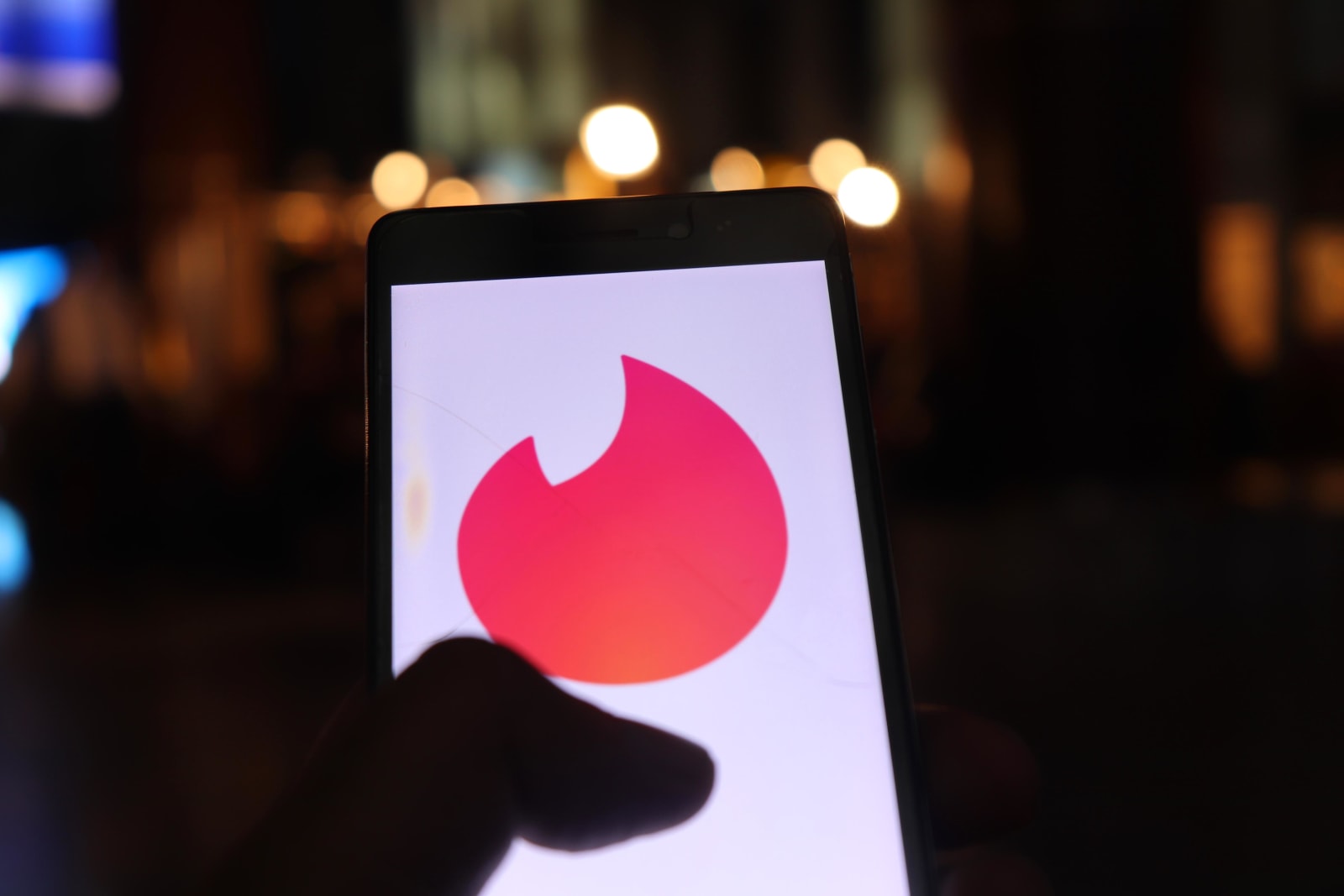
Engadget RSS Feed
YouTube gets 1.8 billion logged-in viewers monthly
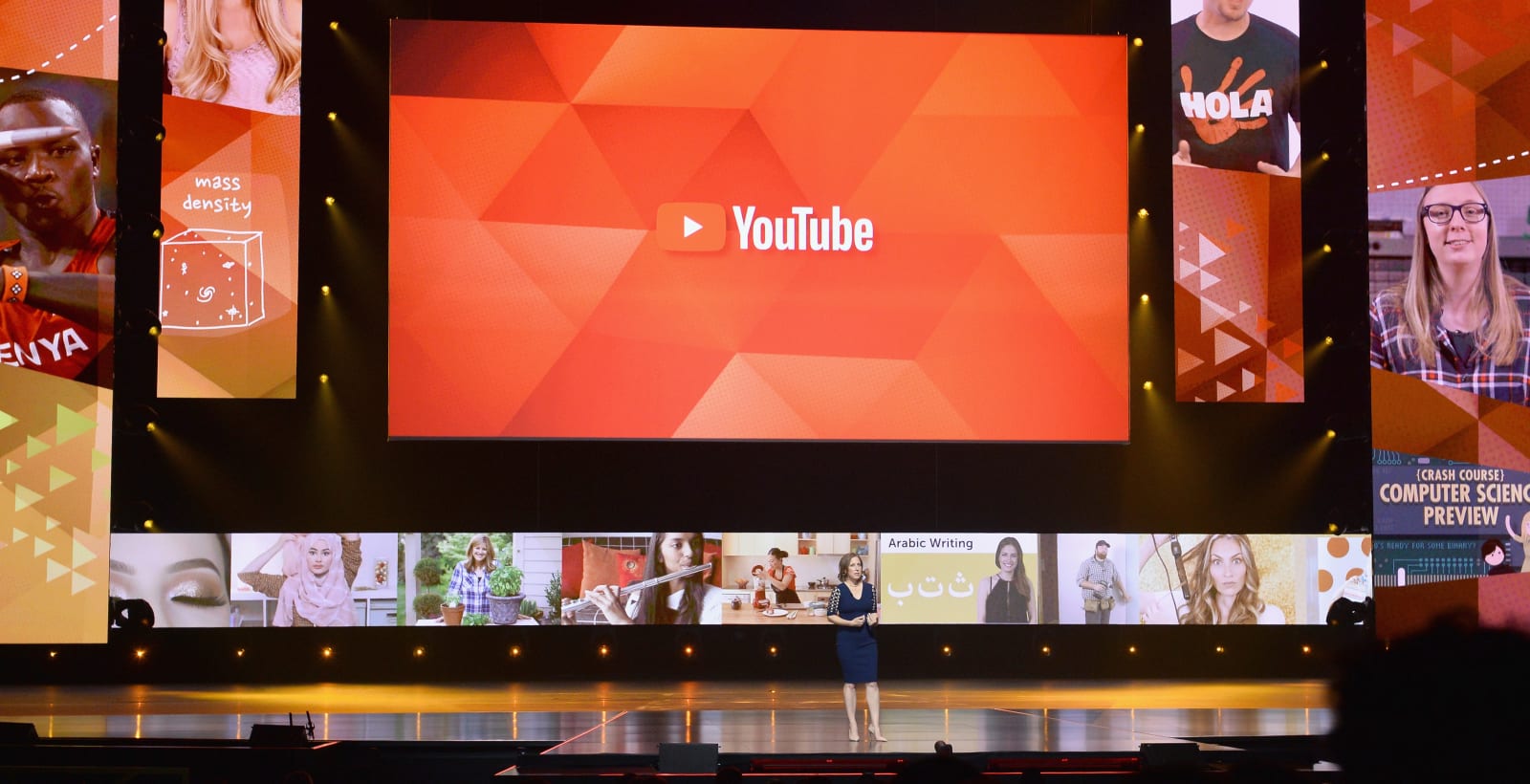
Engadget RSS Feed


Saudi Arabia plans $1 billion investment in Virgin’s space tourism
 Richard Branson has gained a powerful and extremely wealthy ally that can make his space tourism dreams a reality: Saudi Arabia. The kingdom will invest $ 1 billion in the Virgin Group's space companies and might even add $ 480 million more in the futu…
Richard Branson has gained a powerful and extremely wealthy ally that can make his space tourism dreams a reality: Saudi Arabia. The kingdom will invest $ 1 billion in the Virgin Group's space companies and might even add $ 480 million more in the futu…
Engadget RSS Feed
YouTube hits 1.5 billion viewers per month, introduces new share and dynamic adapt features
New features for YouTube were introduced alongside the announcement of a major milestone. Every month there are 1.5 billion logged in viewers on YouTube, which Google says is about 20% of the world’s population. These viewers are watching an hour per day on mobile devices alone. That should mean the 1 billion hours of video […]
Come comment on this article: YouTube hits 1.5 billion viewers per month, introduces new share and dynamic adapt features
You know what’s cool? A billion hours
A few years back, we made a big decision at YouTube. While everyone seemed focused on how many views a video got, we thought the amount of time someone spent watching a video was a better way to understand whether a viewer really enjoyed it. It wasn’t an easy call, but we thought it would help us make YouTube a more engaging place for creators and fans. And last year, we hit a big milestone on that journey: people around the world are now watching a billion hours of YouTube’s incredible content every single day!
Let’s put that in perspective. If you were to sit and watch a billion hours of YouTube, it would take you over 100,000 years. 100,000 years ago, our ancestors were crafting stone tools and migrating out of Africa while mammoths and mastodons roamed the Earth. If you spent 100,000 years traveling at the speed of light, you could travel from one end of the Milky Way to the other (and you wouldn’t age a day!). And if you searched for 100,000 years on YouTube, you’d find a really killer KISS track.
That’s the great thing about this milestone. It represents the enjoyment of the fantastically diverse videos that creative people make every single day. Around the world, people are spending a billion hours every day rewarding their curiosity, discovering great music, keeping up with the news, connecting with their favorite personalities, or catching up with the latest trend.
We’ve worked hard behind the scenes to make that billion-hour journey possible, but this isn’t just our milestone. It belongs to all of you, too—the global audience that tunes in every day and the creators whose videos have made YouTube the original, surprising and limitless source of entertainment it is. From all of us here at YouTube, please accept our heartfelt thanks.
Cristos Goodrow, VP of engineering at YouTube, recently watched “Secret Billionaire: The Chuck Feeney Story.”
You’re watching 1 billion hours of video on YouTube daily
A huge milestone for YouTube was just revealed. If you’re like any of us at Talk Android, you watch a lot of video on YouTube throughout the week. Millions of other people do as well. So it’s not surprising to find out that 1 billion hours of video are being watched on the service every […]
Come comment on this article: You’re watching 1 billion hours of video on YouTube daily
One billion captioned videos
I envision a future where everything will be captioned, so the more than 300 million people who are deaf or hard of hearing like me will be able to enjoy videos like everyone else. When I was growing up in Costa Rica, there were no closed captions in my first language, and only English movies had Spanish subtitles. I felt I was missing out because I often had to guess at what was happening on the screen or make up my own version of the story in my head. That was where the dream of a system that could just automatically generate high quality captions for any video was born.
Today I am lucky to be making my dream a reality as part of a team at YouTube exploring innovative ways to make captions more available for everyone. Over the years we have made great strides both in terms of the numbers of videos with captions and also in the accuracy of those captions.
Google first launched video captions back in 2006. Three years later these efforts were taken to a whole new level with automated captions on YouTube. This was a big leap forward to help us keep up with YouTube’s growing scale. Fast forward to today, and the number of videos with automatic captions now exceeds a staggering 1 billion. Moreover, people watch video with automatic captions more than 15 million times per day.
One of the ways that we were able to scale the availability of captions was by combining Google’s automatic speech recognition (ASR) technology with the YouTube caption system to offer automatic captions for videos. There were limitations with the technology that underscored the need to improve the captions themselves. Results were sometimes less than perfect, prompting some creators to have a little fun at our expense!
A major goal for the team has been improving the accuracy of automatic captions — something that is not easy to do for a platform of YouTube’s size and diversity of content. Key to the success of this endeavor was improving our speech recognition, machine learning algorithms, and expanding our training data. All together, those technological efforts have resulted in a 50 percent leap in accuracy for automatic captions in English, which is getting us closer and closer to human transcription error rates.
| Automatic captions example from our previous model |
| Automatic captions example from our current model |
Continuing to improve the accuracy of captions remains an important goal going forward, as does the need to keep growing beyond 1 billion automatic captions. We also want to extend that work to all of our ten supported languages. But we can’t do it alone. We count on the amazing YouTube community of creators and viewers everywhere. Ideally, every video would have an automatic caption track generated by our system and then reviewed and edited by the creator. With the improvements we’ve made to the automated speech recognition, this is now easier than ever.
I know from firsthand experience that if you build with accessibility as a guiding force, you make technology work for everyone.
Liat Kaver, product manager, recently watched “27 Things You Might Not Know about Star Wars – mental_floss List Show Ep. 450” with automatic caption track.
Facebook shows no sign of stopping, now has 1.86 billion users
Facebook is under quite a bit of pressure of late. It's trying to fix the rise of fake news and clickbait on its News Feed and, more recently, it's had to deal with the Zenimax lawsuit against Oculus. But all of that hasn't eaten into Facebook's bott…
Engadget RSS Feed
LeEco looking for a billion dollar investment deal
LeEco expanded as quickly as possible over the past couple of years, but that created some problems for the company’s cash flow. After expanding into the US market with a slew of phones and a Vizio acquisition, LeEco is pretty close to being completely broke. Since they sell their phones very close to cost to […]
Come comment on this article: LeEco looking for a billion dollar investment deal
Apple could invest $1 billion in SoftBank Vision Fund for emerging tech
According to reports, Apple is in talks to invest $ 1 billion in the SoftBank Vision Fund — aimed at investing in emerging technologies. That could help Apple gain insight into recent tech innovations.
The post Apple could invest $ 1 billion in SoftBank Vision Fund for emerging tech appeared first on Digital Trends.
A billion reasons to celebrate music on YouTube
Last year was a bright one for music—after several tough years of declining revenues, the industry started growing again, spurred in large part by the growth of music streaming subscriptions. This year, the industry has even more reasons to be optimistic. Even as music subscriptions have been growing faster than any other subscription type, advertising is another powerful driver of revenue. In fact, in the last 12 months, YouTube has paid out over $ 1 billion to the music industry from advertising alone, demonstrating that multiple experiences and models are succeeding alongside each other.
And this is just the beginning. As more advertising dollars shift from TV, radio and print to online services, the music industry will generate even more revenue from ads. In the future, the music business has an opportunity to look a lot like television, where subscriptions and advertising contribute roughly equal amounts of revenue, bolstered by digital and physical sales. To achieve this, there is a lot of work that must be done by YouTube and the industry as a whole, but we are excited to see the momentum.
At a time when there’s never been more competition for attention, fans can’t get enough good music. It is clear that this creative industry has two strong engines of growth — subscriptions and advertising — and we are honored to be a part of it.
Robert Kyncl, Chief Business Officer, recently watched “The Hamilton Mixtape Performance Live Stream.”
Samsung expects to miss out on $2.3 billion in profits, and it’s all the Note 7’s fault
Samsung has been forced to slash its expected earnings for the previous three months by a third, due to the failure of the Galaxy Note 7, and resulting product recall. Added into a huge drop in shares, and the financial pain is beginning to show.
The post Samsung expects to miss out on $ 2.3 billion in profits, and it’s all the Note 7’s fault appeared first on Digital Trends.
Truecaller and Huawei reach deal to pre-install app as use eclipses half a billion calls
Showing that even the most basic of smartphone functions can continue to benefit from innovation, Truecaller announced today that after just four months their users have reached a major milestone. On a monthly basis, Truecaller users are now making half a billion calls per month with the app. In recognition of the explosive growth for […]
Come comment on this article: Truecaller and Huawei reach deal to pre-install app as use eclipses half a billion calls
Facebook crushes earnings again and hits a billion daily active users on mobile
User numbers up, revenue up, profit up. Facebook reported yet another set of healthy performance figures on Wednesday, with the data showing that more than a billion mobile users now hit the site on a daily basis.
The post Facebook crushes earnings again and hits a billion daily active users on mobile appeared first on Digital Trends.
10 billion articles of clothing and footwear are going to go smart
Your clothes are about to get real smart. Thanks to a brand new partnership between Fortune 500 packaging company Avery Dennison and Internet of Things startup Evrythng, we’ll soon be inundated with connected clothing.
The post 10 billion articles of clothing and footwear are going to go smart appeared first on Digital Trends.
Dubai is building a $1 billion skyscraper that may be the tallest in the world
Prepare to have a major crick in your neck. Pushing the boundaries of the sky are developers in Dubai, who plan to build a $ 1 billion skyscraper that will put the current tallest building in the world, the Burj Khalifa, to shame.
The post Dubai is building a $ 1 billion skyscraper that may be the tallest in the world appeared first on Digital Trends.
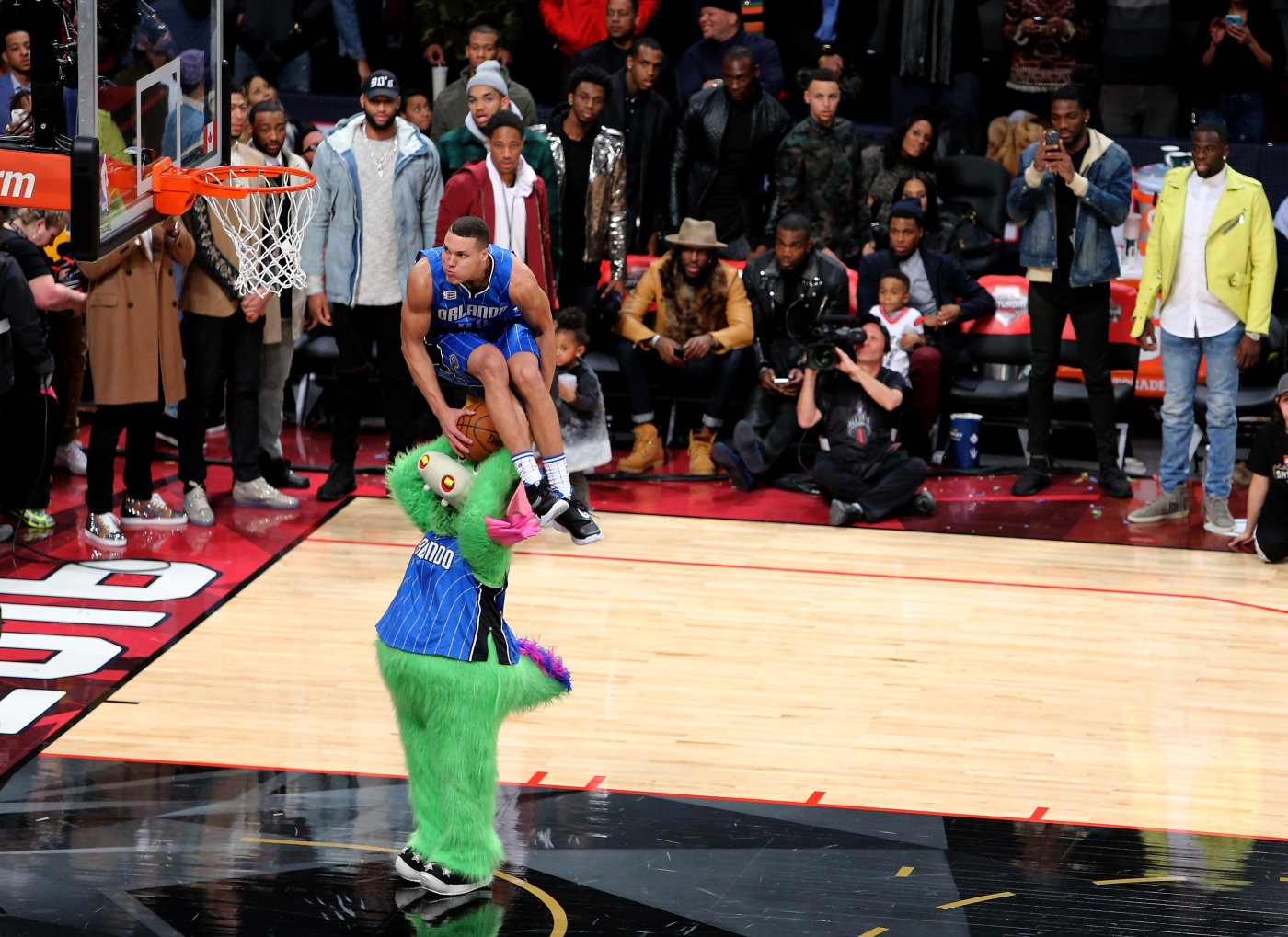
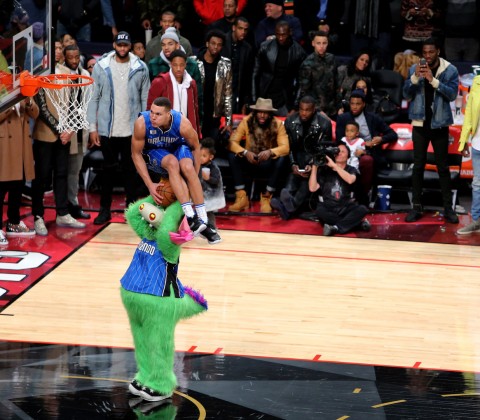
The NBA counts more than a billion likes and followers
 Ahead of tonight's NBA All-Star Game, the league proclaimed it's the first pro sports association with over a billion combined likes and followers on social media. It's debatable how many people that figure actually represents, but it apparently come…
Ahead of tonight's NBA All-Star Game, the league proclaimed it's the first pro sports association with over a billion combined likes and followers on social media. It's debatable how many people that figure actually represents, but it apparently come…
Engadget RSS Feed
WhatsApp marches on, now has 1 billion monthly users
WhatsApp has finally reached the billion-user milestone. While the Facebook-owned messaging app doesn’t generate any revenue, recently revealed plans suggest that could change by developing features within the app that help businesses connect with customers.
The post WhatsApp marches on, now has 1 billion monthly users appeared first on Digital Trends.
Android earned Google $22 billion in profit, says Oracle
Who'd have thought that we'd learn just how profitable Android is from Oracle's lawyer during a court proceeding against Google? According to Bloomberg, Oracle Atty. Annette Hurst has revealed that Google's mobile platform generated $ 31 billion in re…
Engadget RSS Feed


Congress will give NASA nearly $20 billion next year
 In a surprise move, the Republican-controlled Congress has promised to give NASA roughly $ 19.3 billion dollars next year as part of its 2016 omnibus spending bill. That's nearly a billion dollars beyond the $ 18.5 billion that the Obama administration…
In a surprise move, the Republican-controlled Congress has promised to give NASA roughly $ 19.3 billion dollars next year as part of its 2016 omnibus spending bill. That's nearly a billion dollars beyond the $ 18.5 billion that the Obama administration…
Engadget RSS Feed
LG’s $8.7 billion OLED factory might be the birthplace of the OLED iPhone
LG plans to open an OLED factory in 2018, spending $ 8.7 billion on the facility to build all types of displays. The factory might be the first to manufacture OLED displays for the iPhone, with Apple apparently looking for an OLED supplier.
The post LG’s $ 8.7 billion OLED factory might be the birthplace of the OLED iPhone appeared first on Digital Trends.


